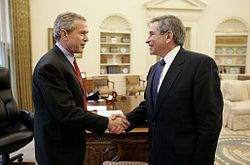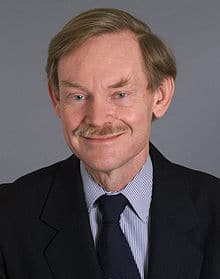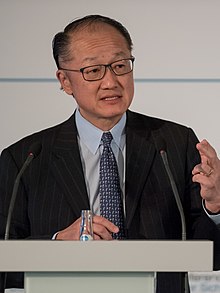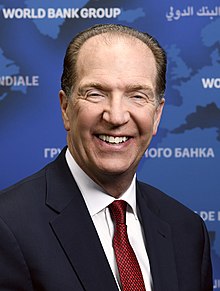In 2020, the World Bank (WB) and the IMF are 76 years old. These two international financial institutions (IFI), founded in 1944, are dominated by the USA and a few major allied powers who work to generalize policies that run counter the interests of the world’s populations.
The WB and the IMF have systematically made loans to States as a means of influencing their policies. Foreign indebtedness has been and continues to be used as an instrument for subordinating the borrowers. Since their creation, the IMF and the WB have violated international pacts on human rights and have no qualms about supporting dictatorships.
A new form of decolonization is urgently required to get out of the predicament in which the IFI and their main shareholders have entrapped the world in general. New international institutions must be established. This new series of articles by Éric Toussaint retraces the development of the World Bank and the IMF since they were founded in 1944. The articles are taken from the book The World Bank: a never-ending coup d’état. The hidden agenda of the Washington Consensus, Mumbai: Vikas Adhyayan Kendra, 2007, and The World Bank : A critical Primer Pluto, 2007.
- Paul Wolfowitz (2005-2007)
- Washington’s offensive against multilateral organizations
- Paul Wolfowitz’ hasty resignation from the World Bank
- Robert Zoellick, 11th World Bank President (2007-2012), Banker and sales executive
- Jim Yong Kim, also American, 12th President of the world Bank (2012-2019)
- David Malpass, another right-wing former banker, 13th President of the World Bank since (…)
- The conquest of the IDB by Donald Trump
- Replace the World Bank, IMF and IDB
Paul Wolfowitz (2005-2007)
In 2020, the World Bank (WB) and the IMF will be 76 years old. These two international financial institutions (IFI), founded in 1944, are dominated by the USA and a few major allied powers who work to generalize policies that run counter the interests of the world’s populations.
The WB and the IMF have systematically made loans to States as a means of influencing their policies. Foreign indebtedness has been and continues to be used as an instrument for subordinating the borrowers. Since their creation, the IMF and the WB have violated international pacts on human rights and have no qualms about supporting dictatorships.
A new form of decolonization is urgently required to get out of the predicament in which the IFI and their main shareholders have entrapped the world in general. New international institutions must be established. This new series of articles by Éric Toussaint retraces the development of the World Bank and the IMF since they were founded in 1944. The articles are taken from the book The World Bank: a never-ending coup d’état. The hidden agenda of the Washington Consensus, Mumbai: Vikas Adhyayan Kendra, 2007, and The World Bank : A critical Primer Pluto, 2007.
The decision of U.S. President George W. Bush, in March 2005, to nominate Paul Wolfowitz, Under Secretary of state for defence and one of the principal architects of the U.S. invasion of Afghanistan in 2001, as President of the World Bank created controversy. Some of the World’s press, such as the British Financial Times, had campaigned for a World Bank President chosen for his or her competence in Third World development and preferably among citizens of a Southern country. The name of Ernesto Zedillo had already been advanced towards the end of the 1990s. George W. Bush’s choice of Paul Wolfowitz clearly stated who was running the show. The 24 World Bank governors did no more than put their rubber stamp on the U.S. choice.
But who is Paul Wolfowitz? He is a pure U.S. state apparatchik, having had long experience in the U.S. corridors of power as well as a brief university career. Having passed a B.A. in mathematics, at the age of 23 he went into U.S. government service in the Budget Office (1966-1967). In 1969, he worked for a congressional commission that sought to convince the U.S. Senate of the necessity of protecting the U.S. from the Soviet Union by creating a nuclear umbrella. They succeeded. As from this moment Paul Wolfowitz was committed to questions of military strategy. A principal theme of his reflection was to identify adversaries (the USSR, China, Iraq, etc.) and have them exposed as more dangerous than they would appear, so as to justify an additional defence effort (a bigger budget, manufacture of new weapons, wider deployment of troops) including the launch of preventive strikes or wars intended to prevent potential threats rather than respond to actual attacks.
Paul Wolfowitz taught for two years at Yale and then obtained a doctorate in political science in 1972 at the University of Chicago, a principal intellectual centre of reactionary conservatism [1]. After which, for four years, he worked at the Arms Control and Disarmament Agency (1973-1977) alongside Bush Sr. who at that time was at the head of the CIA. In 1977 he entered directly into the Pentagon until 1980 in the service of Democrat President Jimmy Carter where he produced reports claiming falsely that the USSR was building new types of atomic weapons. Although he had worked under a Democrat President, after purging a year of penance at the John Hopkins University he entered into the service of President Ronald Reagan in 1981 as director of the planning department of the State Department. Between 1989 and 1993, he was strategy director for State Secretary Richard (Dick) Cheney under the Bush Sr. (1st Gulf war) administration. During the two following administrations under William Clinton, Paul Wolfowitz bided his time as Dean of the Paul Nitze School of International Studies (750 students); an offshoot of the John Hopkins University. He remarkably managed to collect $75 million for the school as well as continuing to act as principal adviser to Northrup Grumman, an American world class arms manufacturer. In 1997, he was one of the founders of the PNAC (Project for a New American Century), a neoconservative pressure group. Other members included Donald Rumsfeld (Secretary of State for Defence in 2001), Dick Cheney (CEO of Halliburton at the time and U.S. Vice-President in 2001), Jeb Bush (George Bush’s brother), Richard Perle and Robert Kagan. As from 1998 the PNAC put pressure on William Clinton to launch preventive attacks against Iraq and other potentially aggressive states. After the Clinton administrations Wolfowitz was nominated as Under-secretary of State for Defence and waged the war against Iraq alongside Donald Rumsfeld.
During the 1983-1989 period when Paul Wolfowitz was involved in U.S. policy in East Asia, he actively supported dictatorships. Indeed, contrary to the image he liked to cultivate, he supported the military dictatorships of Ferdinand Marcos in the Philippines, Chun Doo Hwan in South Korea, and Suharto in Indonesia.
In the early 1980s he tried to save Ferdinand Marcos’ position by persuading him to implement some democratic reforms. At the time in the Philippines, a powerful revolutionary guerrilla warfare, under the leadership of Aquino, allied with a middle class that was strongly opposed to the dictatorship, was close to bringing about another U.S. defeat similar to that in Nicaragua in 1979 when the Sandinistas had passed an alliance with the middle class opposition led by Violetta Chamorro. It was not Paul Wolfowitz who chased Ferdinand Marcos from power in 1986 but the people’s concerted action, with the U.S. securing the dictator’s flight to Hawai. [2]
As for South Korea, Paul Wolfowitz claimed to have persuaded dictator Chun Doo Hwan (who had ordered massacres during the 1980 uprising) to step down in 1987. In fact, the dictator’s demise was the result of the actions of millions of students, workers and citizens demonstrating against him.
In Indonesia where actions against the dictatorship were less developed (with good reason too: when he seized power in 1965, Suharto had half a million civilians massacred), the USA supported the dictator as late as early 1998. Paul Wolfowitz, who, as will be remembered, had been the U.S. ambassador in Djakarta from 1986 to 1989, stated before a Congress meeting in May 1997 that “any balanced judgment of the situation in Indonesia today, including the very important and sensitive issue of human rights, needs to take account of the significant progress that Indonesia has already made and needs to acknowledge that much of this progress has to be credited to the strong and remarkable leadership of President Suharto.” [3]
Paul Wolfowitz’ recent past is better known: he was one of the architects of the pre-emptive strategy developed in Afghanistan and Iraq from October 2001. He was one of the main originators of the lies disseminated through the media about the threat Saddam Hussein represented for the international community. He thought up the “weapons of mass destruction” lies and Saddam Hussein’s alleged support to Al Qaida and international terrorism. In the early days of the war he had claimed that U.S. soldiers would always be seen as the liberators of Iraq and therefore welcomed by the Iraqi people. He also asserted that Iraq would pay for its “liberation” itself thanks to its oil. Donald Rumsfeld, Paul Wolfowitz, George W. Bush and Dick Cheney have used the occupation and so-called “reconstruction” of Iraq for the greater profit of U.S. transnational corporations. There is a very real danger of Wolfowitz doing the same using the conditionalities tied to World Bank aid.
Washington’s offensive against multilateral organizations
The appointment of Paul Wolfowitz needs to be seen against the background of the U.S. offensive on several multilateral institutions.
Act One: On 18 January 2005 Kofi Annan, General Secretary of the United Nations Organization (UN), decided to appoint Ann Veneman, Secretary of Agriculture in the Bush administration, as executive director of UNICEF. It happens that the USA and Somalia are the only two countries that have not ratified the UN Convention on the Rights of Children (ratified by 189 countries). We can easily imagine the kind of pressure Kofi Annan was under to make such a decision.
Act Two: On 7 March 2005 George W. Bush chose John Bolton as U.S. ambassador to the UN. This ultraconservative figure nurtures a deep-seated hatred towards the UN, as testified by his often quoted statement that if the 38-storey UN building ’lost 10 storeys today, it wouldn’t make a bit of difference.’ He tried to have Mohamed El Baradei (in charge of the UN mission that was to keep track of Iraq’s disarmament programme shortly before the 2003 war) sacked. He also managed to see that the U.S. did not ratify the treaty that established the International Criminal Court and withdrew from the UN Conference on Racism convened in Durban in August 2001. The UN in his opinion should never stand in the way of U.S. foreign policy. He even stated that the UN should only function as if it is stewarded by the United States.
Act Three: On 10 March 2005 George W. Bush announced that Paul Wolfowitz was his candidate as World Bank president. On 31 March the WB’s Board of Governors unanimously voted for Paul Wolfowitz as the Bank’s new president. George W. Bush thus showed the international community and his supporters that he could and would press direct U.S. leadership on multilateral institutions.
The appointment of Paul Wolfowitz is in a way similar to that of Robert McNamara in 1968. Robert McNamara had been Defence Secretary and was withdrawn from this post when the Vietnam War turned into a fiasco. Paul Wolfowitz had to leave his post when it appeared that the war in Iraq was a failure. Like Robert McNamara, Paul Wolfowitz knew how to manage a large administration: the Pentagon. Like Robert McNamara, Paul Wolfowitz was an advisor to the U.S. President on foreign policy issues
Paul Wolfowitz’ hasty resignation from the World Bank
When it was discovered in 2007 that Paul Wolfowitz had increased the salary of his girlfriend, a World Bank employee, by 45%, the WB’s Staff Association considered this was unacceptable favouritism and made such a din about it that he had no other choice than to resign.
The call for his resignation was backed up by such personalities as the New Zealand executive director Graeme Wheeler, Democrat party leader John Kerry and the European Parliament, among others.
Robert Zoellick, 11th World Bank President (2007-2012), Banker and sales executive
Although several World Bank member countries thought that this would be an opportunity to choose a new president that was a Southern country national, the U.S. President nominated, for the 11th time, a U.S. citizen in the person of Robert Zoellick. This person had no knowledge of development issues. Under the previous Bush administration Zoellick had been a U.S. Trade Representative, the head of the U.S. delegation to the World Trade Organisation (WTO) where he systematically acted in the sole interests of reinforcing the commercial supremacy of the USA, in contempt of the developing countries needs. During the preparations for the WTO’s Ministerial Conference in Doha in 2001 he went around to all the African governments in order to buy their votes in favour of the adoption of the “Doha agenda”. Happily, in 2007, this project had still not come to fruition. After the WTO Zoellick specialised in negotiating bilateral free-trade treaties between the U.S. and individual developing countries (Chile, Morocco, Salvador, Guatemala, Honduras, Nicaragua, Costa Rica, Dominican Republic, Jordan, etc.) which favoured the interests of U.S. transnational corporations to the demise of the sovereignty of the developing countries. Robert Zoellick was then nominated as Deputy Secretary of State under Condoleeza Rice.
As of July 2006, Robert Zoellick had been Vice Chairman International at Goldman Sachs and Chairman of the firm’s International Advisors of Goldman Sachs. Goldman Sachs is one of Wall Street’s principal business banks, highly involved in the U.S. household debt crisis that burst in August 2007. Goldman Sachs was also involved in the huge amounts of debt that created the property sector speculative bubble.
Robert Zoellick quit Wall Street to replace Wolfowitz at the head of the WB just in time to avoid being directly involved in the 2007-2008 crisis.
During his tenure, Zoellick ensured a $3.75 billion WB loan to finance the construction of the extremely polluting Medupi coal-fired power plant in South Africa. Over and above the anti-environmental nature of the project, the contracts benefited Eskom and Hitachi Power Africa, two companies owned in whole or in part by leaders of the ruling ANC, allowing them to make money through corruption and embezzlement. The extent of corruption is such that there are many voices calling for the cancellation of this odious debt. [ 4]
It is also worth noting that one year after the end of his term at the World Bank, Zoellick took over a management position at Goldman Sachs Bank in 2013.
Jim Yong Kim, also American, 12th President of the world Bank (2012-2019)
Jim Yong Kim, also American, directed the World Bank between 2012 and 2019, until he resigned suddenly on 7 January 2019, to occupy a better paid position in an investment fund specialising in infrastructures. Whilst attending the nomination of a new WB President by the American President, the interim was assured, from 1st February, by Kristalina Georgieva, who in October 2019 was to replace Christine Lagarde as General Director of the IMF.
In order to directly defend the interests of American economic superiority, in May 2017 JY Kim accompanied Ivanka Trump, the daughter of the misogynistic billionaire U.S. president, on a visit to Saudi Arabia, long-term ally of the USA.
Through a pledge to the Women’s Entrepreneurship Fund, the visit was aimed at enabling the ultra-reactionary Saudi monarchy to try to forge a progressive image for itself as it constantly tramples on women’s rights. In reality, the fund, launched under the aegis of Ivanka Trump, JY Kim and Justin Trudeau, aims to participate in the accumulation of capital at the global level, on the pretext of advancing women’s emancipation.
Contrary to flattering portraits painted of JY Kim, he has done nothing to contribute to the reform of the World Bank, which has always defended the interests of capital and the richest and most powerful countries (particularly the United States, Canada, Western Europe and Japan ), to the detriment of human rights and the preservation of the planet.
David Malpass, another right-wing former banker, 13th President of the World Bank since 2019
David Malpass, a Donald Trump favourite, became the 13th President of the World Bank in April 2019. He had worked for the U.S. Treasury and for Foreign Affairs during the terms of Ronald Reagan and George H. W. Bush (1989-1993), then as chief economist for Bear Stearns, a major investment bank until its bankruptcy in 2008 in the midst of the subprime crisis! In August 2007, Malpass published an op-ed piece in the Wall Street Journal in which he urged his readers not to worry about the state of the financial markets, going so far as to write that ’Housing and debt markets are not that big a part of the U.S. economy, or of job creation…the housing- and debt-market corrections will probably add to the length of the U.S. economic expansion.” [5] He joined Donald Trump’s team in May 2016, where he served as Under Secretary of the Treasury for Foreign Affairs before becoming President of the World Bank.
The conquest of the IDB by Donald Trump
In September 2020, for the first time in the history of the Inter-American Development Bank, Donald Trump succeeded in having a U.S. citizen elected as president of the institution. Mauricio Claver-Carone is an American lawyer and jurist. As an advisor to Donald Trump’s government, he has defended a hard line in U.S. international policy, especially with respect to Cuba or towards Venezuela.
As Ariela Ruiz Caro writes, “Mauricio Claver-Carone was elected president of the IDB with the support of 30 of its members, 16 abstentions and 2 absences, including China. According to a communiqué from the Argentinean Ministry of Foreign Affairs, five Latin American countries abstained (Argentina, Chile, Mexico, Peru, and Trinidad and Tobago), in addition to the partner countries that are members of the European Union. Since Trump nominated his current advisor for the region to the White House National Security Council for the presidency of the IDB in mid-June, former Latin American and European presidents, diplomats, political, cultural and academic figures, and the general public have not ceased to denounce the need to postpone the election because it violates customary international law (United Nations General Assembly Resolution 73/203 of December 20, 2018) to nominate a non-Latin American or Caribbean candidate for the presidency.
Replace the World Bank, IMF and IDB
The World Bank and the IMF must be replaced by other global institutions characterized by democratic functioning. The new World Bank and the new International Monetary Fund, whatever their new name, must have radically different missions from their predecessors: they must guarantee the satisfaction of international treaties on human rights (political, civil, social, economic and cultural) in the area of international credit and international monetary relations. These new global institutions must be part of a radically reformed global institutional system promoted by the United Nations. It is essential and a priority that developing countries join together to constitute regional entities with a common Bank and a common monetary fund as soon as possible.
If people’s movements were to accede to governments in several developing countries and set up their own development bank and international monetary fund, these countries would be perfectly capable of dispensing with the World Bank, the IMF, the IDB and the private financial institutions of the most industrialized countries.
- The World Bank: an ABC
- The International Monetary Fund (IMF): an ABC
- Concerning the founding of the Bretton Woods’ Institutions
- The WB assists those in power in a witch-hunting context
- Early conflicts between the UN and the World Bank/IMF tandem
- SUNFED versus World Bank
- Why the Marshall Plan ?
- Why the 1953 cancellation of German debt won’t be reproduced for Greece and Developing Countries
- Domination of the United States on the World Bank
- World Bank and IMF support to dictatorships
- The World Bank and the Philippines
- The World Bank’s support of the dictatorship in Turkey (1980-1983)
- The World Bank and the IMF in Indonesia: an emblematic interference
- Theoretical lies of the World Bank
- The South Korean miracle is exposed
- The debt trap
- The World Bank saw the debt crisis looming
- The Mexican debt crisis and the World Bank
- The World Bank and the IMF: the creditors’ bailiffs
- Presidents Barber Conable and Lewis Preston (1986-1995)
- James Wolfensohn switches on the charm (1995-2005)
- The Meltzer Commission on the IFI at the U.S. Congress in 2000
- The World Bank’s accounts
- From Paul Wolfowitz (2005-2007) to David Malpass (2019-…): the U.S. President’s men control the World Bank
Footnotes:
[1] Milton Friedman, un des pontes de l’université de Chicago, et les Chicago boys vont conseiller le dictateur chilien, Augusto Pinochet, après son coup d’État de septembre 1973. See Eric Toussaint. 2005. Your Money or Your Life : the Tyranny of Global Finance . Chapitre Chapter 14, “Neoliberal ideology and politics : Historical perspectives” , p. 254-269.
[2] See Walden Bello , U.S. Sponsored Low Intensity Conflict in the Philippines, San Francisco, Institute for Food and Development Policy, 1987
[3] Tim Shorrock, “Paul Wolfowitz, Reagan’s Man in Indonesia, Is Back at the Pentagon”, in Foreign Policy in Focus, February 2001, p. 3
[4] See Jonathan Cannard, Cancel Eskom’s odious debt to the World Bank, Mail & Guardian, 19 August 2019, https://mg.co.za/article/2019-08-19-00-cancel-eskoms-odious-debt-to-the-world-bank/
[5] Jordan Weissmann, ’Trump Taps Bear Stearns Economist Who Said Not to Worry About Credit Crisis for Key Treasury Job’ 5 January 2017 https://slate.com/business/2017/01/trump-picks-ex-bear-stearns-economist-for-treasury-position.html consulted on 8 August 2020.





